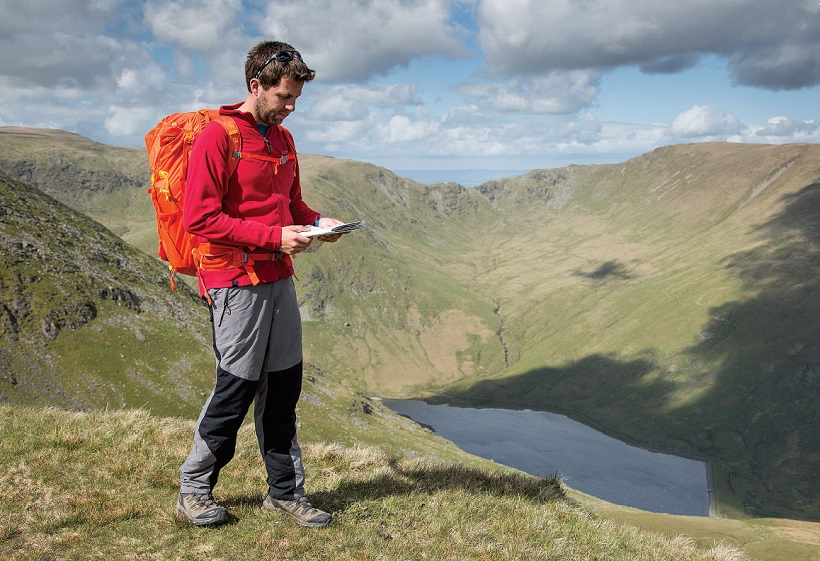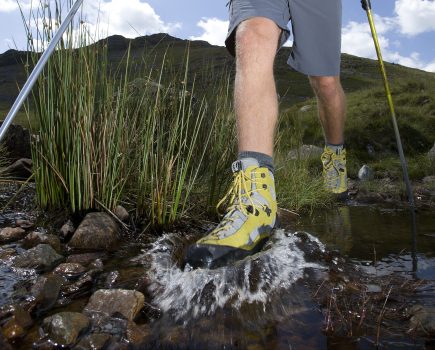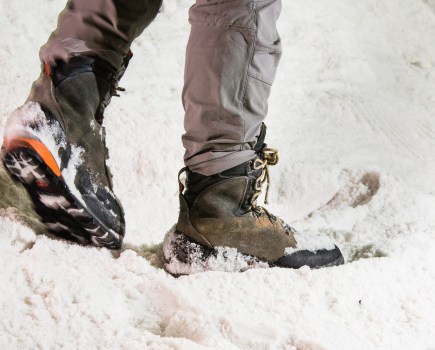Walking alone can bring a totally different experience to a hike. It can allow contemplation, meditation introspection and a deeper immersion in your surroundings, and it can also bring much more freedom. But there is an element of risk that it brings, particularly in the mountains and in winter. Here are eight things that are worth addressing if you are planning to go it alone…
Plan ahead
“Self-reliance and solo walking can be the most rewarding and fantastic experiences but sensible precautions and plans make sense as the mountains are not benign,” says Mike Margeson, Vice Chairman and Operations Lead of Mountain Rescue England and Wales. Spend plenty of time plotting your route at home before leaving for the hill. Read up on the route and on the hills. Check weather forecasts and build your plans around them.
Start easy
If you’re not used to walking alone, start with areas or hills that are familiar to you or popular routes where you know you’re likely to run into other people.
Gear up
Consider what you carry carefully. There won’t be anyone else around with a spare first aid kit or extra food. But don’t overburden yourself either – going lightweight can be tremendously liberating and enable you to walk faster, should you so choose.
RELATED: Essential tips for first time wild camping
Consider timing
An early start gives you more opportunity to be flexible and the time and space to handle any navigational challenges or other issues that arise. Long summer days give you more leeway than the shorter hours and more challenging conditions of the cooler months.
Err on the side of caution
Follow your instincts – if a situation feels wrong, it’s probably for a reason. Challenging terrain like scrambles, snow and especially river crossings can be more dangerous on your own, particularly as there’s nobody to help if you do run into bother.
Know your nav
Make sure you’re confident with the navigation required to complete your walk. Don’t rely on a GPS – they can run out of battery very quickly. Take a map and compass and use a GPS or phone as back-up.
Keep in touch
Make sure someone knows where you’re going, and don’t forget to contact them when you’re down, or even during the day – especially if you know your mobile signal might be poor later.
Be prepared
If there’s any chance that you could end up benighted, take a bivvy bag and enough supplies to cope with an overnight.
Photo: Tony West







